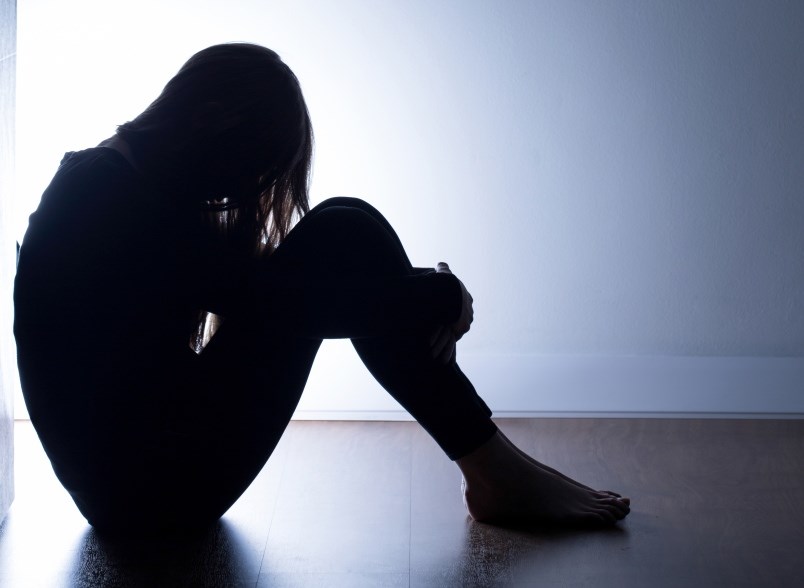Abrar Mechmechia knows first-hand the trauma of war and the impact it can have on mental health.
She was based in Aleppo when the Syrian civil war erupted in 2011, working as a youth mental health counsellor.
Now, she works in Hamilton, counselling primarily newcomer youth and others from marginalized populations. What she’s heard from clients during the pandemic, she said, parallels some of the trauma symptoms she’d treated earlier in her career.
“Many are expressing going through depressing moods, being frustrated, not knowing what’s coming next,” Mechmechia said. Others are having sleeping problems and anxiety over their future — symptoms that are compounding their already-existing trauma.
This exacerbated mental health toll is not only affecting newcomers, Mechmechia and others said, but also Indigenous youth and other marginalized young people who already made strides to heal from previous trauma. COVID-19, experts said, has retraumatized these youth, with the potential for dire consequences if their mental health care needs are not met.
It is why Mechmechia has joined a group of about 20 advocates across Canada through the In This Together Campaign, who are calling on the federal and provincial governments to implement a post-pandemic mental health recovery plan for Canada’s youth, with a focus on marginalized populations including BIPOC youth, youth in care and LGBTQ+ youth.
“We know that ‘building back better’ is important, but this statement should not be reduced to only the country’s economic recovery — mental health matters, too,” said campaign leaders in an open letter released Monday to Prime Minister Justin Trudeau and Canada’s premiers.
The group has had a preliminary meeting with the Public Health Agency of Canada, said Anna Maddison, a spokesperson for the federal agency. Maddison added there are plans to engage youth and other stakeholders as they build Canada’s pandemic recovery plan.
Mechmechia said the campaign would like to see the government put more emphasis on mental health in its post-pandemic rebuilding strategy through drafting a mental health recovery plan in consultation with Canadian youth.
She added she hopes this plan will emphasize increasing access to mental health practitioners, especially those who can intervene early, and will bolster culturally relevant services that can build trust with struggling youth and help them in their own communities.
Jenna Robar, a Mi’kmaq community ambassador for the In This Together Campaign based in Nova Scotia, said COVID-19 has been particularly difficult for Indigenous youth who relied on cultural practices and group events for healing.
Under COVID-19 restrictions, Robar said many ceremonial events and sacred practices can’t be held, retraumatized youth whose family struggled for generations when these practices were outlawed in Canada.
“Some of those deeply embedded traumas are coming up again,” Robar said.
Youth who have been through the child welfare system have also been especially hit by COVID-19, said Irwin Elman, former Child and Youth Advocate for the Province of Ontario and campaign adviser for In This Together.
Elman, who has worked with youth leaving the child welfare system for the bulk of his career, said some have lost their income due to the pandemic and have been evicted from their homes as a result — a traumatizing blow for those who have worked hard to build a safety net and who otherwise have limited means of support.
“These young people, whether they’re LGBTQ2S young people, youth from care, racialized young people, newcomers and refugees, live precarious lives already,” Elman said. “When the pandemic hits, it just creates trauma after trauma.”
Canada and Ontario have announced some funding for mental health during the pandemic, including launching virtual mental health initiatives like Wellness Together Canada and BounceBack, and allocating funding for more psychologists and social workers in school.
“The Government of Canada recognizes that COVID-19 continues to create stress and anxiety for many Canadians, particularly those who do not have ready access to their regular support networks,” Maddison with Public Health Canada said.
But Elman said these responses are “quick wins” that don’t address the systemic and complex issues marginalized youth have been facing over the course of the pandemic.
“They tend to be institutional solutions to human problems,” Elman said of the government’s mental health response so far.
“Governments need to roll up their sleeves and find a way to reach into the communities through grassroots organizations and create supports through them, so that those most marginalized have services right beside them,” he said.
The cost of inaction, Elman said, will be felt economically and socially if youth continue to struggle with no access to mental health care well into their adulthoods.
Mechmechia said she’s seen first-hand the toll a crisis can have on young people, and she hopes Canadian youth will have the support they need to overcome it.
“I don’t want Canadians to go through what I went through back in Syria, because we were not prepared, we didn’t have enough support and there was no plan in place before the crisis and after the crisis,” Mechmechia said.
“You can’t be productive if you can’t overcome your own trauma, and no one wants to carry their trauma forever.”
Nadine Yousif is a federally funded Local Journalism Initiative reporter for the Toronto Star



